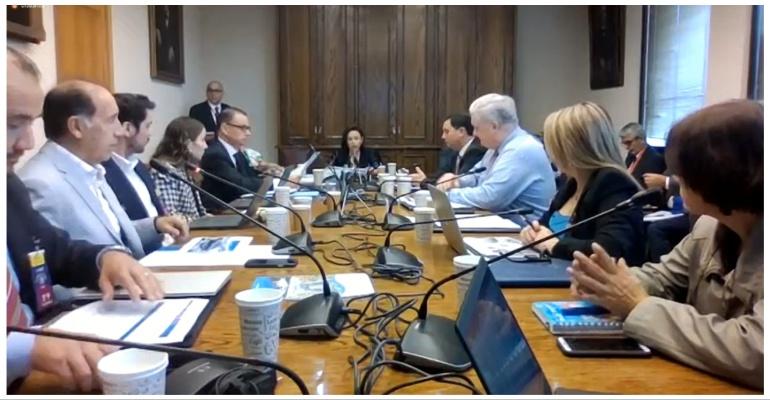Chile's Senate is considering whether to expand cabotage rights to foreign-flag ships carrying fewer than 400 passengers. Currently, under a 2019 law, only those with at least 400 passengers may sail domestically.
The 400 threshold (denying cabotage rights) was made to protect the domestic cruise industry while giving it plenty of room to grow; at the time, the largest Chilean-flag vessels carried around 200 passengers. Since then, despite the protection from international competition, the domestic business has not substantially increased.
Growth in small-ship cruising
But many new foreign-flag expedition cruise ships have entered service, and Chilean port representatives believe the country could attract more of them if the law were changed to give greater itinerary flexibility.
'This type of cruises, which operate mainly in the southern zone, do not require large hotel or airport infrastructure at turnaround ports. Therefore, many ports and tourist places have the capacity to receive them,' Conosur President Enrique Runín told the Senate Transportation and Telecommunications Commission on Wednesday.
Making Chile more attractive as a cruise destination
He said allowing ships to offer shorter itineraries — without the need to call at a foreign port to satisfy cabotage — would make Chile more attractive as a cruise destination.
Runín said South America represents only a 2.1% sliver of the global cruise market, and Chile accounts for just 6% of that.
Shorter cruises would bolster demand from international customers with high purchasing power, a different market than that currently served by national operators, according to Runín, who's also the president of the Chacabuco Port Co.
'Opportunities open up for new towns to become cruise destinations, thus boosting their local economies, and it is possible to promote new short routes and tourist destinations in the northern and central areas of the country,' Runín argued. 'Finally, the demand for supply services, fuel, crew, etc. increases.'
Runín asserted that extending cabotage rights to small foreign-flag passenger ships would not compete with the current offer for tourist services from local operators.
Good reception from the Senate Commission
The Conosur chief reported a good reception from the Commission, chaired by Sen. Ximena Ordenes. 'We had the opportunity, enough time and the attention of the parliamentarians to be able to clearly present what we think is a proposal that would bring many benefits to ports and towns throughout Chile,' he said.
Accompanying Runín to the Senate meeting were Conosur Second VP Juan Marcos Mancilla, logistics manager for the Port of Valparaíso, and Executive Secretary Eric Petri.
Also attending were Héctor Azua, president of Union of Merchant Marine Officers (SI.MAR); Raquel Meza, president of the Mascarona Foundation for Seafarers; and Cristian Grecco, president of the National Federation of Seafarers (FENAGEMAR).
Copyright © 2024. All rights reserved. Seatrade, a trading name of Informa Markets (UK) Limited.
Add Seatrade Cruise News to your Google News feed.  |

